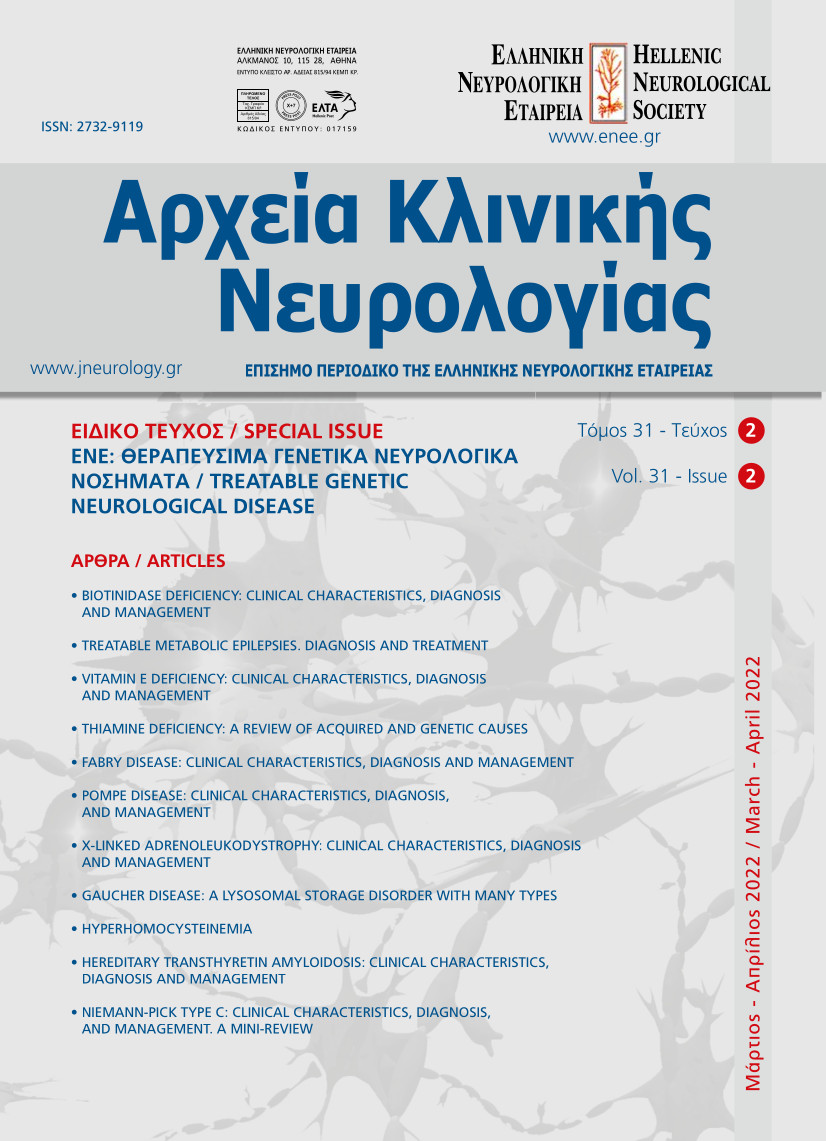HEREDITARY TRANSTHYRETIN AMYLOIDOSIS: CLINICAL CHARACTERISTICS, DIAGNOSIS AND MANAGEMENT
Περίληψη
Hereditary transthyretin amyloidosis (hATTR) is an adult onset, lethal, autosomal dominant, multisystemic
disease due to the deposition of mutated transthyretin (TTR) in various tissues, mainly the peripheral nerves
and the heart. Circulating mutated TTR tetramers are unstable and dissociate into misfolded monomers
which then polymerize into amyloid. Although there are more than 120 mutations in the TTR gene, the
p.Val30Met mutation is by far the commonest and typically presents with a length dependent sensory
and autonomic axonal neuropathy or a mixed phenotype that also includes cardiomyopathy. Due to its
multisystemic phenomenology patients may present to non-neurologists and diagnosis can be delayed.
Treatment is now available and includes TTR stabilizers as well as gene silencing therapies. Timely diagnosis
is of paramount importance for a better prognosis.


